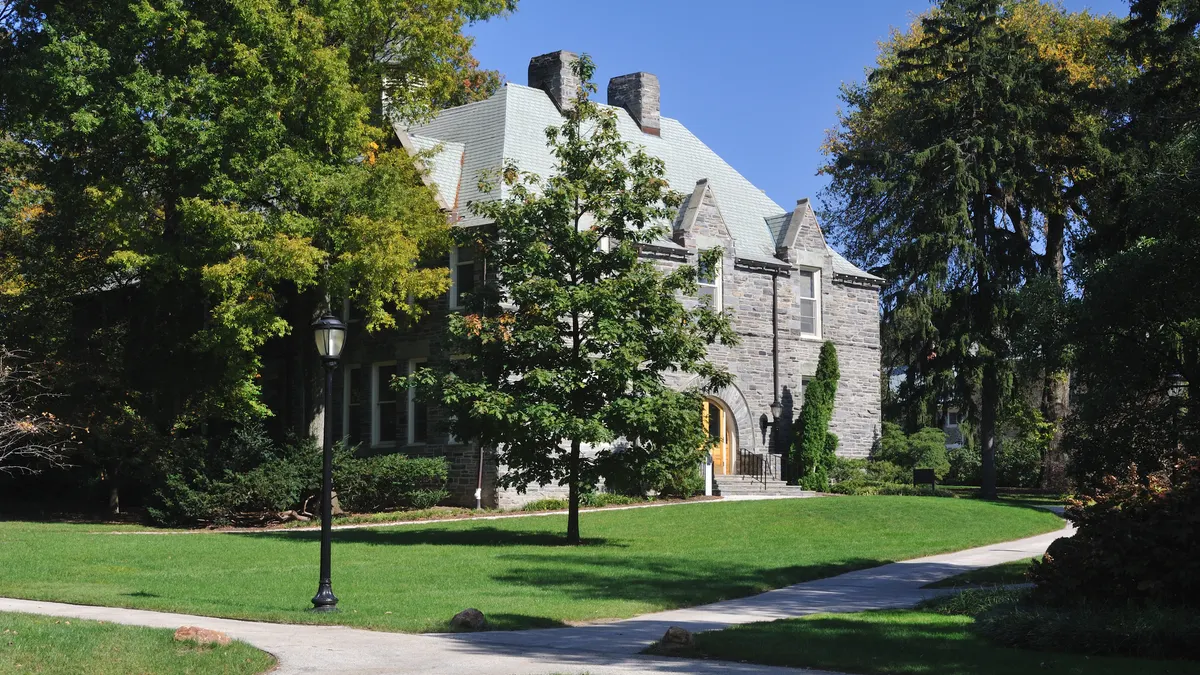Dive Brief:
- The U.S. Department of Education is investigating Haverford College in Pennsylvania over allegations the institution hasn’t done enough to respond to campus antisemitism.
- The department cited unspecified “credible reporting” that senior leaders at the small liberal arts college told Jewish students who reported harassment that they should not expect to be safe, instead telling them to be brave.
- Haverford is the latest college facing a federal investigation into antisemitism as the Trump administration seeks to exert increasing control over the higher education sector.
Dive Insight:
The Education Department's investigation into Haverford focuses on Title VI of the Civil Rights Act, which bars discrimination based on race, color or national origin at institutions that receive federal funds.
“Like many other institutions of higher education, Haverford College is alleged to have ignored anti-Semitic harassment on its campus, contravening federal civil rights law and its own anti-discrimination policies,” Craig Trainor, the department's Acting Assistant Secretary for Civil Rights, said in a Wednesday statement.
A spokesperson for Haverford confirmed Thursday that the college had received a copy of the complaint and is reviewing it.
In May, Republican lawmakers called the leaders from three colleges, including Haverford, before the House education committee to discuss how they’ve responded to allegations of antisemitism on their campuses. Committee Chair Tim Walberg said he called Haverford to testify because relatively small colleges were "seeing shocking rises in anti-Jewish incidents and rhetoric" and "antisemitism has taken root at Haverford College."
Haverford President Wendy Raymond told legislators that the roughly 1,500-student college hadn't "always succeeded in living up to our ideals" but that she remained "committed to addressing antisemitism and all issues that harm our community members."
Haverford's handling of campus tensions since the Oct. 7, 2023, Hamas attack on Israel and the ensuing Middle East conflict have received mixed responses from students.
In 2024, a group of Jewish Haverford students, faculty, alumni and parents sued the college over allegations it failed to protect Jewish students and ensure students could participate in classes “without fear of harassment if they express beliefs about Israel that are anything less than eliminationist.”
Despite questions about the student lawsuit, Raymond declined to discuss individual reports of alleged antisemitism or disciplinary actions with lawmakers.
The plaintiffs amended their lawsuit in January after U.S. District Judge Gerald McHugh dismissed the case, but he again granted Haverford's request to dismiss the complaint in June. McHugh ruled that the students' arguments failed to meet the threshold for a Title VI claim, including by failing to show that the college had "deliberate indifference" to antisemitism.
“While Plaintiffs paint a picture of a stressful campus climate for Jewish students, many of the incidents pled fall within the protection of the First Amendment,” McHugh wrote in his decision. He also said the plaintiffs did not demonstrate a "concrete educational impact" resulting from the alleged incidents.
Other Jewish students defended Haverford in an op-ed in the college's independent student newspaper, saying the college teaches them "to engage critically with different viewpoints." The op-ed, published prior to Raymond's testimony, also criticized the House education committee, alleging it was weaponizing antisemitism and calling the scheduled hearing "unmistakably an excuse to target the most vulnerable people on our campus.”















